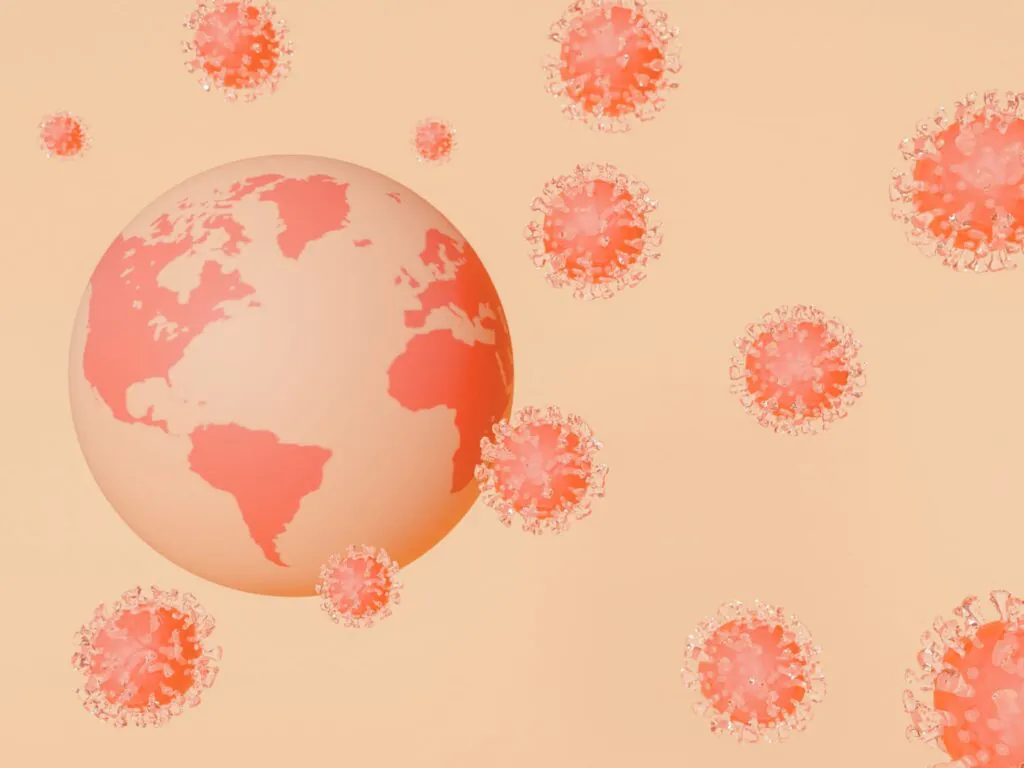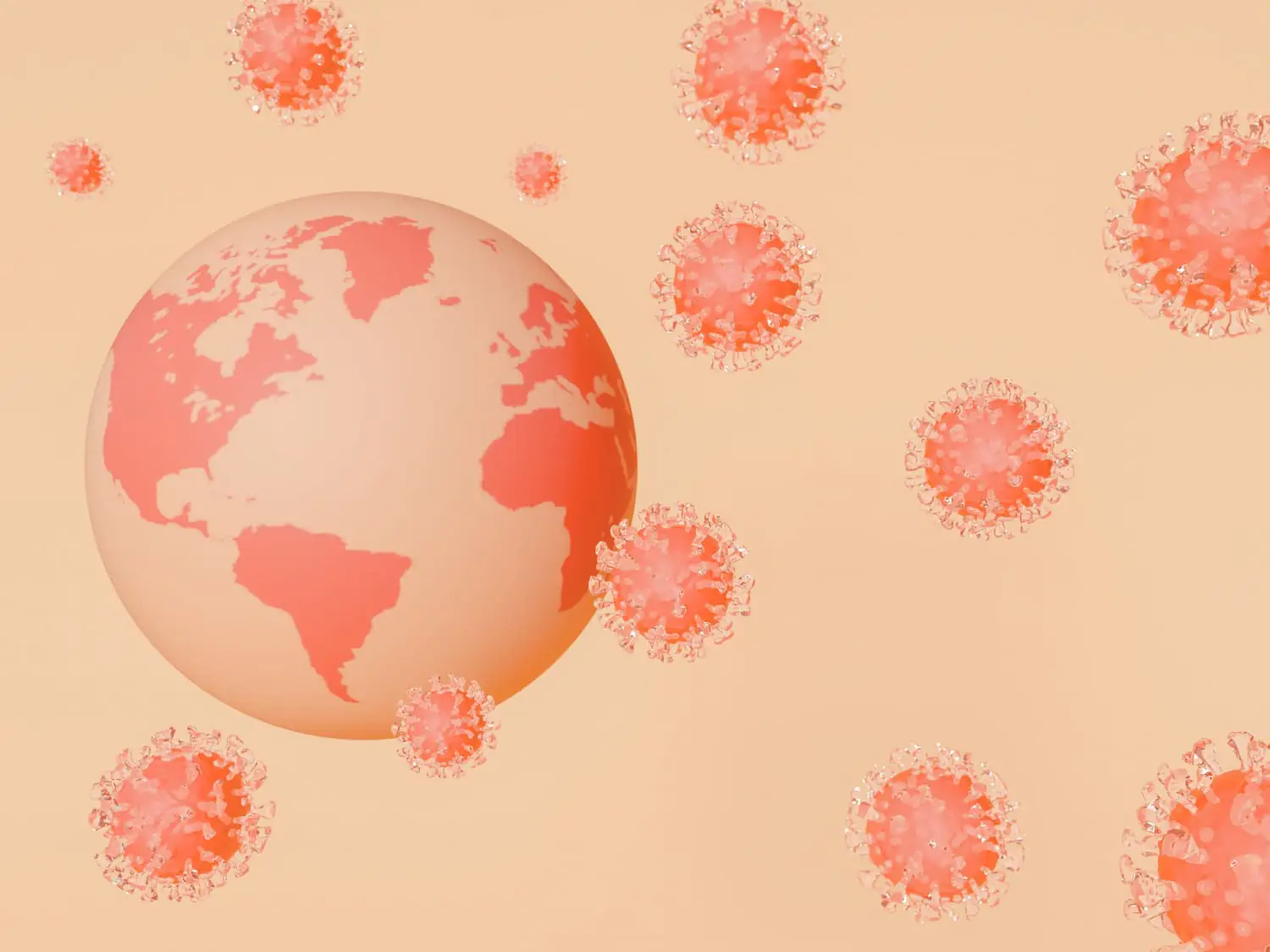
What is Norovirus? Norovirus Symptoms?
Norovirus is a virus that can cause infection in the gastrointestinal tract. Noroviruses are the leading causes of gastroenteritis, also known as stomach flu, which is characterized by symptoms such as nausea, vomiting and diarrhea. Although there is no known treatment to be effective against norovirus, which can cause
What is Norovirus?
Norovirus is an RNA virus belonging to the Caliciviridae family that causes stomach and intestinal infections with severe vomiting and diarrhea. Norovirus, known for its ability to survive in its environment, can be easily transmitted through person-to-person contact. Therefore, the
What Are the Symptoms of Norovirus?
Norovirus infection is characterized by symptoms such as nausea, vomiting, abdominal pain, diarrhea. The first symptoms usually appear within 12-48 hours after a person is exposed to the virus. Norovirus symptoms can range from mild to severe, depending on the viral load and the general health status of the patient, and may even be asymptomatic (without any symptoms) in some people. The main
- Nausea or vomiting,
- Stomach and abdominal pain,
- Diarrhea
- Headache
- Fatigue
- Mild fever,
- Muscle and joint pains.
The listed symptoms usually disappear spontaneously within 1 to 3 days. However, if the symptoms last longer and blood is seen in the stool, it is important to consult a doctor in person or
Symptoms of Norovirus in Infants
Norovirus infection is one of the leading causes of acute gastroenteritis in infants. In infants, as in adults, norovirus manifests itself with symptoms such as abdominal pain, vomiting and diarrhea. In addition, babies can show their restlessness by crying, as they are not yet able to fully express themselves. Often, making sure babies drink plenty of fluids can help relieve the baby’s symptoms. However, norovirus can cause serious complications such as severe gastroenteritis and necrotizing enterocolitis (intestinal tissue death) in premature babies. For example, norovirus infections, which can cause sudden outbreaks in neonatal intensive care units, may be more severe in newborn babies because the immune system development of newborn babies has not yet been completed. In addition to these, severe vomiting and diarrhea in infants and children can cause dehydration, that is, disruption of fluid-electrolyte balance. The younger the baby, the more vomiting and diarrhea can affect the baby. Accordingly, the situations that may require face-to-face or
- vomiting and diarrhea in infants younger than 6 months,
- Six or more watery stools in 24 hours,
- The baby vomit three or more times in 24 hours,
- Pallor of skin color,
- No tears flow from the eyes of the baby when crying,
- Sunken eyes,
- High fever
- Not reacting to things that he normally reacts to,
- Blood in the stool,
- Not wetting the diaper for 6 to 8 hours,
- Symptoms persist for more than two days.
In case of one or more of the above-mentioned symptoms, it is important to consult a specialist doctor immediately.

What Are the Types of Norovirus?
Norovirus, an RNA virus belonging to the Caliciviridae family, draws attention with its genetic diversity. The GII.4 genotype of this virus, which is classified into six main genogroups, leads to global epidemics. Norovirus can rearrange its genetic material to create new genotypes. The fact that the GII.4 genotype can escape the immune system by undergoing continuous genetic change also increases the spread rate of the virus. This is the main reason why there is currently no vaccine known to be effective against norovirus. However, an increasing understanding of the molecular structure of the GII.4 strain raises hopes that effective vaccines can be developed.
How is norovirus transmitted?
In the vast majority of studies on “What is norovirus?”, it is seen that even a very small number of norovirus particles are enough to transmit the infection from a sick person to a healthy person. This is the main reason for the potential for a sudden outbreak of infection on a global scale. In addition, the survival ability of the virus is quite high. Billions of virus particles found in an infected person’s feces or vomit can survive for long periods of time on contaminated surfaces. One of the most common ways of transmission of norovirus infection is through direct contact with the feces or vomit of infected people.
In addition, consuming food and beverages prepared or touched by infected people without disinfecting their hands, or bringing hands to the mouth after touching contaminated surfaces can also cause transmission of the virus. In addition, shellfish, especially oysters, can be a natural habitat for norovirus. Therefore, inadequate cooking of shellfish can increase the risk of infection transmission.
What Causes Norovirus?
The cause of norovirus can be examined within the framework of the genetic structure of the virus, its environmental resistance and its effects on human health. For example, the genetic diversity of the virus and the constant change of its genetics can make it difficult for the immune system to recognize norovirus. In addition, the immunity that occurs after a norovirus infection is usually short-lived, which can lead to a recurrence of the disease even if you have been infected with the virus once. Environmental resistance to norovirus is also among the main causes of infection. According to studies, norovirus can survive for a long time at different temperatures and surfaces. This makes it difficult to neutralize the virus, making it easier for the virus to spread. This can lead to the rapid spread of epidemics, especially in areas with low hygiene standards, such as developing countries.
What Is Norovirus Good For?
Norovirus infection manifests itself with symptoms such as severe nausea, vomiting and diarrhea. If the infection continues for a long time, various complications, especially dehydration, may develop, so the answer to the question “
Is Norovirus Contagious?
Norovirus is a highly contagious viral infectious disease. Gastroenteritis, also known as stomach flu, has many different causes, including bacterial, parasitic and viral gastroenteritis. About 60% of all cases of gastroenteritis are caused by viruses. About 50% of all viral gastroenteritis cases are caused by norovirus. The rapid transmission ability of the disease is an important public health problem, especially in crowded areas such as hotels and in the food industry. Studies show that the contagiousness of the virus is high even in case of exposure to a small amount of virus particles.
How is norovirus transmitted?
Noroviruses can be easily transmitted from one infected person to another via the fecal-oral route. In other words, taking the hand to the mouth after coming into contact with surfaces contaminated with virus particles in the person’s feces or vomit, or not washing contaminated foods adequately and not cooking them well can cause transmission of the virus.
Norovirus Treatment
Since there is no definitive treatment for norovirus infection today, specialists in the treatment process usually focus on relieving the symptoms and replacing the fluid that the patient has lost. Since vomiting and diarrhea, which are the main symptoms of infection, can cause serious fluid loss, the main goal of treatment is to maintain fluid and electrolyte balance. In mild cases, oral fluid intake may be sufficient, while intravenous fluid supplementation may be required in patients with severe fluid loss.
To be able to control symptoms such as vomiting, diarrhea, pain and fever, specialists may prescribe certain medications. However, it is important not to use these drugs without consulting a specialist doctor by making an online doctor’s appointment.
As important as it is to control symptoms in norovirus patients, it is equally important to prevent the infection from spreading to relatives. Patients can continue to transmit the virus for at least 3 days after recovery. Some people may even continue to spread the virus for up to 2 weeks after recovery. Avoiding close contact with other people during the illness, washing hands frequently with soap and water, and regularly disinfecting common areas can help prevent the spread of the disease.
How Many Days Does Norovirus Pass?
Under normal conditions, norovirus infection goes away on its own within a few days. How many days the infection lasts is closely related to the immune system of the person. In the vast majority of patients, symptoms begin to regress within 1-3 days. On the other hand, a 2018 study on “
Norovirus Frequently Asked Questions
Does Norovirus Cause Fever?
Norovirus, like many other infectious diseases, can cause fever. While most viruses and bacteria can survive at normal body temperature, they cannot survive at higher temperatures. Therefore, when the immune system encounters a microorganism that is harmful to health, it sends a signal to the brain to raise the body’s temperature. In the case of norovirus infection, which is a viral infectious disease, some patients may also experience mild fever.
Is Norovirus Lethal?
Norovirus is usually not lethal. Symptoms usually go away on their own within a few days. Infants, children, the elderly, or people with weakened immune systems for any reason can cause dehydration. If appropriate treatment is not applied in the early period, dehydration can threaten the life of the person.





